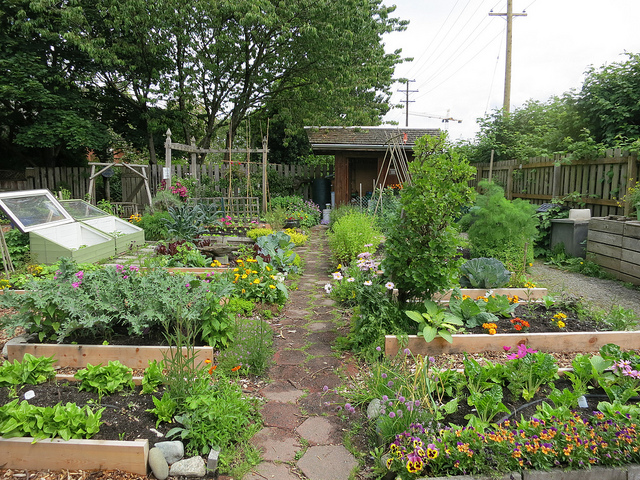Local action is often the best remedy for the failings of the current system — a worldwide confederation of democratic communities can have the same impact at a global scale.
Today we are seeing an inspiring resurgence of progressive action at the local level, even as reactionary nationalist movements in Europe and beyond seek to position themselves as the true voices of a renewed localism. What are the prospects for such locally centered political engagement in a time of rising political polarization and conflict? How can local action help advance personal liberation and social justice? More broadly, how can it further our goals for global transformation?
The current upsurge of local action by both progressives and radical municipalists is fueled by several complementary impulses. First, the limitations of national politics and contemporary international institutions have caused growing frustration. The stranglehold of corporate influences — from fossil fuel interests to the financial sector — over national and transnational institutions often overwhelms resistance, whether the focus is on the US government, the European Union, or comparable structures around the world.
For people seeking meaningful action on the global climate crisis, rising economic inequality, or various immediate threats to people’s health and well-being, local measures often allow the most attainable initial steps toward the broader transformations we seek. Frustration with the limitations of national or transnational politics can thus be channeled toward a pragmatic pursuit of attainable steps toward justice and community renewal.
Other motivating factors are more aspirational in nature. The aim to bring important decisions closer to home reflects a desire for engagement over anonymity, right relationship over polarizing conflict, and hope for a meaningful role in decisions that affect our lives. The appeal of “democracy begins at home” has deep historic roots, including the participatory Town Meeting structures that shaped the colonial uprising against British rule in late eighteenth-century North America.
While important choices about social, environmental, and technological policies appear inherently global in character, the principle of subsidiarity — enshrined in EU legal codes among others — speaks to the widespread desire for decision-making as close to the local level as possible.
At their best, local solutions to social and environmental problems may be more amenable to an open and accessible democratic process, and their implementation can remain more accountable to those most affected by the outcomes. Local measures can help build closer relationships among neighbors and strengthen the capacity for self-reliance in a time of increasingly extreme climate-related disruptions.
Local actions enable us to see that the ruling institutions that often dominate our lives may be far less essential than people tend to believe, and that we can effectively challenge regressive policies at the national and supranational levels that favor powerful outside interests. At the same time, local initiatives often raise the question of how to spark a broader social transformation that can offer a systemic change greater than the sum of its dispersed local expressions.
Indeed, the rise of regressive, nostalgic, and profoundly reactionary forms of populism around the world has served to illuminate the limitations of a politics of localism for its own sake.
Some years prior to initiating the national campaign for “Brexit,” the reactionary UK Independence Party proclaimed that “real decision-making should be given to local communities” — only thinly veiling an agenda to marginalize immigrants and oppose renewable energy and even ban discussions of climate change in local schools.
Racist organizations in the US South have long hidden behind localist rhetoric, as do the militia movement and other far right neo-populist formations. Suburbanites in Detroit, as well as in Southern US cities, have established new local jurisdictions to exclude people of color from decision-making and create newly segregated school districts. Wealthy homeowners in major California cities have bankrolled efforts to halt an increase in the housing supply through a statewide easing of zoning rules.
In the lead-up to the recent European Parliament elections, right-populist formations came together in a new political grouping that called itself “Freedom and Direct Democracy,” directly co-opting some of the most advanced language of the emerging new radical municipalism.
How then can we steer clear of such co-optation — and best reap the benefits of the liberatory potential of local action?
Theories of Transformation
From
Kurdish militants in Syria and Turkey to dynamic young organizers in North America, many current activists cite social ecology as a central underlying inspiration for their political outlook. Social ecology offers a unique synthesis of utopian social criticism, historical and anthropological investigation, dialectical philosophy and political strategy.
The foundational texts of social ecology were written by the Vermont-based social theorist
Murray Bookchin between the 1970s and 1990s. Among the first thinkers in the West to identify the growth imperative of capitalism as a fundamental threat to the integrity of living ecosystems, Bookchin consistently argued that social and ecological concerns are fundamentally inseparable. He described his distinct approach to political strategy as libertarian (or confederal) municipalism, and sometimes as communalism, highlighting the roots of key ideas in the
legacy of the Paris Commune of 1871.
Bookchin argued for
liberated cities, towns and neighborhoods, governed by open popular assemblies, which actively confederate in order to challenge parochialism, encourage interdependence and build a genuine counterpower to dominant institutions. Social ecologists also believe that the limits of local action and the problems of parochialism and reactionary nationalism can be overcome through confederations of cities, towns and neighborhoods that join to advance a broad liberatory agenda.
While institutions of capitalism and the nation-state often tend to heighten social stratification and exploit divisions among people, social ecologists insist that the lived experience of direct democracy can foster expression of a general social interest that strengthens human solidarity and advances a transformative social and ecological agenda. “[I]t is from the municipality,” Bookchin
wrote, “that people can reconstitute themselves from isolated monads into a creative body politic and create an existentially vital…civic life that has institutional form as well as civic content: the block committees, assemblies, neighborhood organizations, cooperatives, citizens’ action groups, and public arenas for discourse that go beyond such episodic acts as demonstrations and retain a lived as well as organized community.”
The act of civic engagement through face-to-face deliberative structures can help transcend divisions and build solidarity. Still, physical decentralization per se cannot guarantee progressive social transformation in the absence of an inclusive civic ethics, participatory self-governance and a holistic ecological outlook.
For social ecologists, confederation and internal education through praxis offer essential counterpoints to localist tendencies toward provincialism and isolation.
Organizers in urban neighborhoods can aim to rewrite city charters and restructure municipal governance as a confederation of directly democratic neighborhood assemblies. Then, like-minded neighborhoods, cities and regions can continue to confederate at wider geographic levels to realize common projects, better satisfy essential needs, and ultimately create a viable counterpower to today’s ruling institutions.
Another core principle of
today’s municipal movements is horizontalism, a political practice that aims to equalize decision-making across various sectors of society. The term (horizontalidad in Spanish) was first articulated during the Argentine uprising in response to the economic collapse of 2001, but has numerous historical antecedents. Prefigurative practices aimed toward dissolving social hierarchies and elevating popular voices have emerged in recent decades during periods of heightened social contestation on nearly every continent.
Further clues to an expansive conceptual framework for “glocalism” may be found in the legacy of bioregionalism. Peaking in popularity during the 1980s and early 1990s, this movement helped ecologically minded activists imagine how to transform governance so as to transcend the limits of state and national boundaries and move toward a more Earth-centered vision.
Bioregionalism’s ideas of governance based on watersheds rather than political boundaries have significantly shaped contemporary practice in such domains as regional planning and water resource management. Bioregionalists have also embraced a movement-of-movements approach, where advocates for various spheres of social and ecological praxis formed committees to draft proposals at biennial continental congresses, which then came before the committee of the whole for final amendment and adoption.
Finally, in an era of increasing nationalism, it is essential to heed the warnings of prominent anthropologist Arturo Escobar. At the apex of the worldwide global justice/alter-globalization movements in the early 2000s, Escobar
embraced the “defense of constructions of place” by social movements that seek to advance ecological democracy, while firmly rejecting the attitudes of essentialism, nostalgia and exclusion that can tend to link “boundary making around places…to reactionary politics.”
Scaling Sideways and Up
Dynamic, people-powered progressive grassroots movements are on the rise in many parts of the world. Some confront corporate-driven threats to people’s health and livelihoods, such as the expanding pace of fossil fuel production due to fracking and other new technologies. Indigenous and other land-based communities in the Global South actively resist the extraction of timber and mineral resources, as well as misguided climate mitigation measures, such as carbon sequestration schemes that substitute distant bureaucratic management of forests for traditional commons regimes.
In France, rural workers have been in open revolt against tax policies that favor the rich, filling the streets to denounce the extreme isolation of national elites. An Irish citizens’ assembly, with delegates chosen at random, launched the national referendum that ultimately voted down a long-standing constitutional ban on abortions.
Here in the US, towns in some of the most conservative pockets of Pennsylvania and other states have organized to assert community rights over corporate rights, and successfully fought off expansion plans by polluting industries.
We see increasingly bold public expressions of human compassion, through the creation of sanctuaries and “cities of refuge” to protect threatened immigrants, offer direct aid, and sometimes grant local citizenship rights in defiance of exclusionary national policies. Food and farm activists are reinvigorating urban farming and regional food systems around the world, demanding food sovereignty and advancing local alternatives that save energy and water, improve public health, empower marginalized communities, meanwhile challenging the hegemony of global agribusiness.
Visionary planners, designers and on-the-ground activists are working to reshape their cities to reduce commuting and minimize energy use. An international alliance of trade union representatives has
launched a worldwide campaign to democratize energy systems under increasing public ownership and a youth-initiated rebellion against rising transit fares in Sweden and other Scandinavian countries helped spark a global network
advocating free public transportation, among countless other recent examples.
More than 2,500 cities from Oslo to Sydney have submitted plans to the United Nations to reduce their greenhouse gas emissions, frequently in defiance of their national governments’ far more cautious proposals; well over 9,000 municipalities have joined a Global Covenant of Mayors to reinforce their commitments to climate action.
Some of these plans are rather modest, drawing upon cities’ existing jurisdiction over matters such as zoning, building codes and local infrastructure, but some cities are also moving to limit automobile use, expand public transportation and accelerate the transition to renewable energy.
Furthermore, we are seeing the emergence of
a grassroots “municipalist” movement that directly challenges national centers of power and raises the potential for a more thoroughly transformed political order. In cities as different as Barcelona in Spain and Jackson in Mississippi, municipal movements rooted in well-organized neighborhoods have elected radical mayors and city councilors with a mandate to defend the rights of tenants, strengthen the public sector of the economy, and implement transformative approaches to community development.
In Jackson, an organization known as Cooperation Jackson established neighborhood assemblies and successfully ran candidates for office on a program emphasizing human rights, local democracy, and neighborhood-based economic and ecological renewal. The project is rooted in the historic legacy of Black Liberation struggles and celebrates their inspiration by movements throughout the Global South. In the heart of the war-torn Middle East, Kurdish activists along the border between Syria and Turkey have adopted a unique model of municipal governance, with a focus on equity for women and new models of ecological reconstruction.
A youthful network known as
Symbiosis now involves hundreds of individuals and dozens of affiliated local groups. The network’s founders have facilitated several major North American gatherings on municipal politics over the past two years, and the group is now planning a congress of directly democratic municipal movements. As Symbiosis’s founders
explain, “[W]e can’t actually make the necessarily large-scale changes without taking control over the places where we live and creating the alternatives necessary for a new system.”
Progressive, locally rooted movements have long proven their ability to influence wider social and political trends, whether by force of example, concerted political pressure, or active resistance to centralized power. The passage of landmark national environmental legislation in the US in the early 1970s during the Republican administration of Richard Nixon was in part a response to the proliferation of grassroots mobilizations leading to local anti-pollution measures and lawsuits during the 1960s, with corporate interests ultimately choosing uniform national regulations over a patchwork of increasingly restrictive local measures.
Local measures to address inequality, such as campaigns to raise the hourly minimum wage to $15, have spread across the US, as have countless other innovative policies whose feasibility has first been demonstrated at the local level. In other cases, a heightened conflict between local values and centralized power structures brings the potential for lasting change.
The idea of confederated democratic municipalities actively rebelling against centralized authorities to create revolutionary institutions of dual power is central to social ecology’s communalist political strategy and to the political outlooks of several contemporary municipalist movements.
It seems clear that local action is often the best remedy for the failings and excesses of the present system and a proven approach to catalyzing wider changes.
But what about problems that are inherently global in nature? How can locally based movements provide the underpinning for the broader global transformations we seek? Can we envision networks of locally rooted continental and perhaps global structures that reflect a comprehensive vision of interdependent communities and simultaneously embody a holistic, cosmopolitan outlook and a truly humanistic general interest? How can confederations of municipally based movements begin to address the needs to redistribute wealth, transform economic systems, or manage the increasingly climate-driven crisis of migration around the world? Can they, as Bookchin insisted, tackle the fundamental question of where and with whom political power resides?
We need to strengthen forms of coordination that emerge from the municipal context to support a growing network for change in synchrony with a global resurgence of solidarity, democracy and justice. The recent upsurge of Green politics across Europe offers one source of hope, but many long-time Green activists are aware of how an earlier generation of Green Party functionaries in many countries
succumbed to narrow electoral ambitions at the expense of the organic links to communities and social movements pointing to a more systemic alternative.
Confederations of democratic communities and regions need to develop new continental and global institutions that are no longer plagued by the global power politics of the UN, the narrow commercial imperatives of the WTO, nor the technocratic managerialism of the EU. Through creative experimentation, visionary forms of action, and life-affirming political struggle, we can discover ways to resist the tides of reaction and climate-driven collapse and
point the way toward a different world.
Today’s increasingly severe climate disruptions are beginning to universalize the sense of precariousness long experienced by the earth’s most vulnerable peoples. If current trends continue, we face a grim future of ever-diminishing returns and a capitalist race to the bottom, with increasingly extreme deprivation on a global scale.
But there is a better path. The odds may be diminishing with each passing year of climate inaction, but it is more necessary than ever to sustain a hope that humanity can unite to reject authoritarian false solutions to the climate crisis and social inequities, embrace the potential for an enhanced quality of life beyond fossil-fueled capitalism, and begin to realize the dream of a liberated and truly interdependent global community of communities.
This post is republished from ROAR Magazine. Read the original article here.


